BMW 1 Series vs Mercedes EQB – Which model is better for everyday use?
Both models have their strengths – but which one suits you more?
Compare performance, efficiency, price and space directly: BMW 1 Series or Mercedes EQB?
Costs and Efficiency:
Price and efficiency are key factors when choosing a car – and this is often where the real differences emerge.
BMW 1 Series has a decisively advantage in terms of price – it starts at 28200 £, while the Mercedes EQB costs 45900 £. That’s a price difference of around 17669 £.
Engine and Performance:
Power, torque and acceleration say a lot about how a car feels on the road. This is where you see which model delivers more driving dynamics.
When it comes to engine power, the BMW 1 Series has a barely noticeable edge – offering 300 HP compared to 292 HP. That’s roughly 8 HP more horsepower.
In acceleration from 0 to 100 km/h, the BMW 1 Series is clearly perceptible quicker – completing the sprint in 4.90 s, while the Mercedes EQB takes 6.20 s. That’s about 1.30 s faster.
In terms of top speed, the BMW 1 Series performs evident better – reaching 250 km/h, while the Mercedes EQB tops out at 160 km/h. The difference is around 90 km/h.
There’s also a difference in torque: Mercedes EQB pulls clearly perceptible stronger with 520 Nm compared to 400 Nm. That’s about 120 Nm difference.
Space and Everyday Use:
Beyond pure performance, interior space and usability matter most in daily life. This is where you see which car is more practical and versatile.
Both vehicles offer seating for 5 people.
In curb weight, BMW 1 Series is convincingly lighter – 1465 kg compared to 2105 kg. The difference is around 640 kg.
In terms of boot space, the Mercedes EQB offers distinct more room – 495 L compared to 380 L. That’s a difference of about 115 L.
In maximum load capacity, the Mercedes EQB performs clearly perceptible better – up to 1710 L, which is about 510 L more than the BMW 1 Series.
When it comes to payload, BMW 1 Series a bit takes the win – 510 kg compared to 435 kg. That’s a difference of about 75 kg.
Who wins the race?
The BMW 1 Series proves to be leaves the rival little chance and therefore becomes our DriveDuel Champion!
BMW 1 Series is the better all-rounder in this comparison.
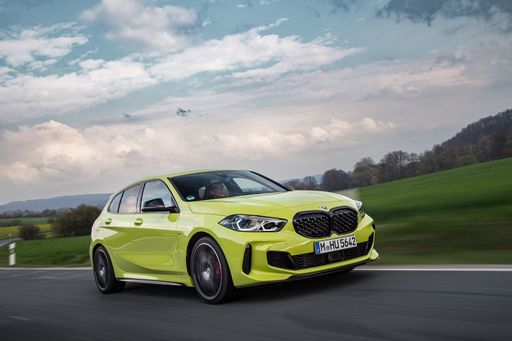
BMW 1 Series
BMW 1 Series
The BMW 1 Series stands out with its dynamic design that embodies both elegance and sportiness, making it an attractive choice for urban driving. Its interior offers a premium feel, combining quality materials with the latest in technological features to enhance comfort and connect drivers. Under the bonnet, a range of efficient engines ensures a responsive and enjoyable driving experience, balancing power with practicality.
details @ press.bmwgroup.com
@ press.bmwgroup.com
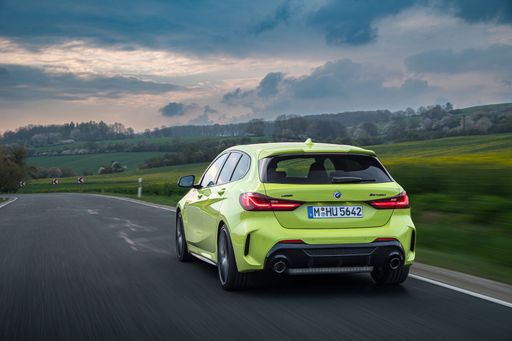 @ press.bmwgroup.com
@ press.bmwgroup.com
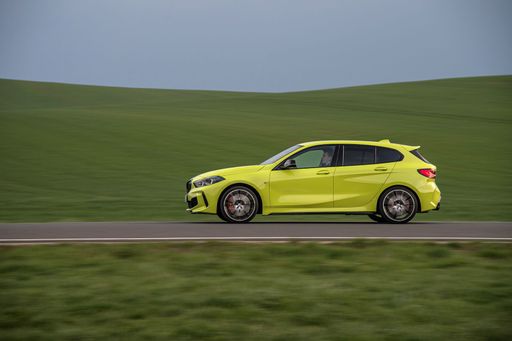 @ press.bmwgroup.com
@ press.bmwgroup.com
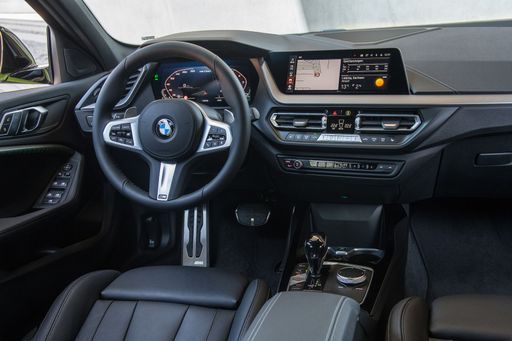 @ press.bmwgroup.com
@ press.bmwgroup.com
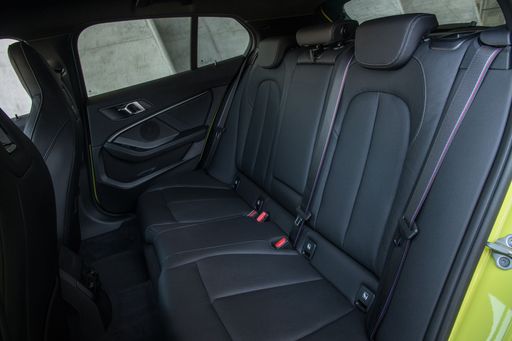 @ press.bmwgroup.com
@ press.bmwgroup.com
Mercedes EQB
The Mercedes-Benz EQB is an all-electric compact SUV that seamlessly blends practicality with modern luxury. Its sleek design and spacious interior make it an attractive option for families seeking both style and function. With advanced technology and impressive range capabilities, the EQB is a testament to Mercedes-Benz's commitment to sustainable mobility.
details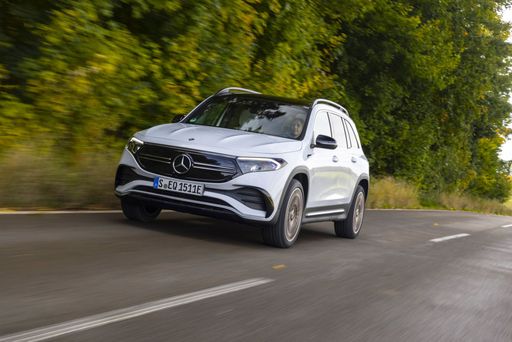 @ group-media.mercedes-benz.com
@ group-media.mercedes-benz.com
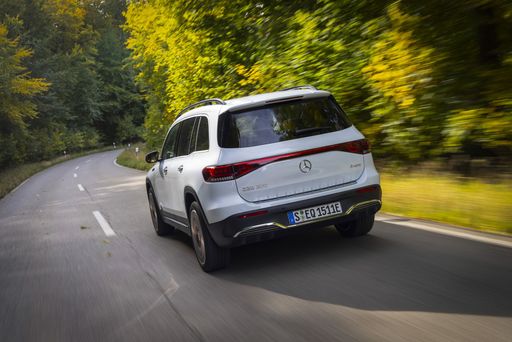 @ group-media.mercedes-benz.com
@ group-media.mercedes-benz.com
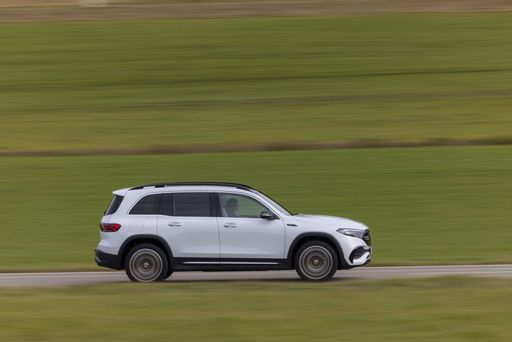 @ group-media.mercedes-benz.com
@ group-media.mercedes-benz.com
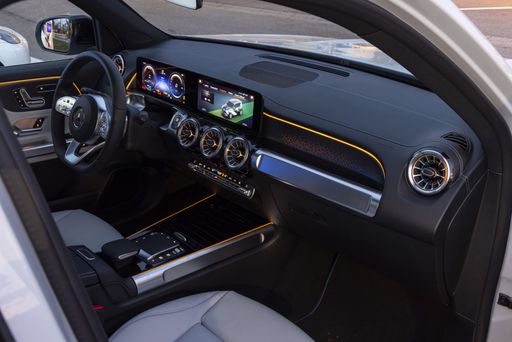 @ group-media.mercedes-benz.com
@ group-media.mercedes-benz.com
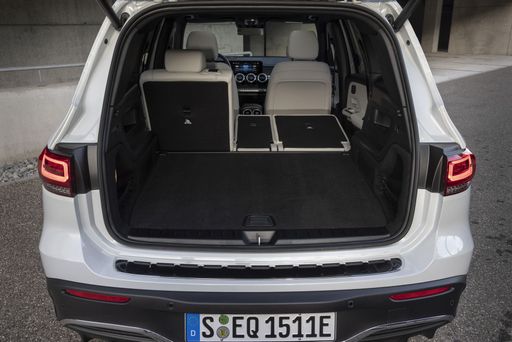 @ group-media.mercedes-benz.com
@ group-media.mercedes-benz.com

|

|
|
|
|
Costs and Consumption |
|
|---|---|
|
Price
28200 - 51100 £
|
Price
45900 - 58900 £
|
|
Consumption L/100km
4.3 - 7.6 L
|
Consumption L/100km
-
|
|
Consumption kWh/100km
-
|
Consumption kWh/100km
15.2 - 17.2 kWh
|
|
Electric Range
-
|
Electric Range
468 - 535 km
|
|
Battery Capacity
-
|
Battery Capacity
70.50 kWh
|
|
co2
112 - 173 g/km
|
co2
0 g/km
|
|
Fuel tank capacity
49 L
|
Fuel tank capacity
-
|
Dimensions and Body |
|
|---|---|
|
Body Type
Hatchback
|
Body Type
SUV
|
|
Seats
5
|
Seats
5
|
|
Doors
5
|
Doors
5
|
|
Curb weight
1465 - 1625 kg
|
Curb weight
2105 - 2170 kg
|
|
Trunk capacity
300 - 380 L
|
Trunk capacity
495 L
|
|
Length
4361 mm
|
Length
4684 mm
|
|
Width
1800 mm
|
Width
1834 mm
|
|
Height
1459 mm
|
Height
1654 - 1689 mm
|
|
Max trunk capacity
1135 - 1200 L
|
Max trunk capacity
1710 L
|
|
Payload
475 - 510 kg
|
Payload
435 kg
|
Engine and Performance |
|
|---|---|
|
Engine Type
Diesel, Petrol MHEV, Diesel MHEV, Petrol
|
Engine Type
Electric
|
|
Transmission
Automatic
|
Transmission
Automatic
|
|
Transmission Detail
Dual-Clutch Automatic
|
Transmission Detail
Reduction Gearbox
|
|
Drive Type
Front-Wheel Drive, All-Wheel Drive
|
Drive Type
Front-Wheel Drive, All-Wheel Drive
|
|
Power HP
122 - 300 HP
|
Power HP
190 - 292 HP
|
|
Acceleration 0-100km/h
4.9 - 9.8 s
|
Acceleration 0-100km/h
6.2 - 8.9 s
|
|
Max Speed
210 - 250 km/h
|
Max Speed
160 km/h
|
|
Torque
230 - 400 Nm
|
Torque
385 - 520 Nm
|
|
Number of Cylinders
3 - 4
|
Number of Cylinders
-
|
|
Power kW
90 - 221 kW
|
Power kW
140 - 215 kW
|
|
Engine capacity
1499 - 1998 cm3
|
Engine capacity
-
|
General |
|
|---|---|
|
Model Year
2024
|
Model Year
2024 - 2025
|
|
CO2 Efficiency Class
D, C, F
|
CO2 Efficiency Class
A
|
|
Brand
BMW
|
Brand
Mercedes-Benz
|
What drive types are available for the BMW 1 Series?
The BMW 1 Series is offered with Front-Wheel Drive or All-Wheel Drive.
The prices and data displayed are estimates based on German list prices and may vary by country. This information is not legally binding.
